Kate Bowler: Hi, I’m Kate Bowler, and this is Everything Happens. Look, the world loves us when we are good, better, best. But this is a podcast for when you want to stop feeling guilty that you’re not living your best life now. We’re not always doing mountaintop yoga. I used to have my own delusion of living my best life now. I’m a Duke professor, wine and cheese enthusiast, wife and mom. Instagram gold. Then I was diagnosed with stage four cancer. That was four years ago, and I’m still here. And now I get it. Life is a chronic condition. The self-help and wellness industry will try to tell you that you can always fix your life. Eat this and you won’t get sick, lose this weight and you’ll never be lonely. Believe with your whole heart and God will provide. Keep this attitude and the money is yours. But I’m here to look into your gorgeous eyes and say, hey, there are some things you can fix and some things you can’t. And it’s OK that life isn’t always better. We can find beauty and meaning and truth, but there’s no cure to being human. So let’s be friends on that jury. Let’s be human together.
Kate Bowler: I want to be the kind of person who believes in the impossible, who prays for big things like healing from disease and restoration of marriages and an end to a pandemic. I want to be the kind of person who prays for miracles. An interruption to the natural order of things, a divine surprise that changes how things would have been. A move of God. But too often, we can be left sitting among broken dreams and shattered hope. Today, I wanted to talk to someone who prays for the impossible, has experienced miracles, both extraordinary and ordinary, understands deep disappointment and yet remains a person of stubborn hope.
K.B.: Sarah Bessey is the author of the bestselling books Jesus Feminist, Out of Sorts, and Miracles and Other Reasonable Things. Along with her friend Rachel Held Evans, Sarah co-founded the Evolving Faith Conference. And last year, Rachel died suddenly at 38, which was devastating to all of us. And Sarah and a beautiful community of faith leaders, including writer Jeff Chu, had to figure out how to continue to lead. Sarah lives in Abbotsford, British Columbia, with her husband, Brian and her family. And as kids, we both visited the thriving peri metropolis of Moose Jaw, Saskatchewan every summer and our families knew each other. So kindred spirits, I would say. Sarah, I’m sitting here with a giant bronchial infection and I sound insane, but I will start with the obvious. Hello, and I love you.
Sarah Bessey: Hello. And I love you, too. So happy to be here with you. My goodness.
K.B.: Oh, my gosh. I think we became instant friends, not just because you’re Canadian and crazy smart, but you also share my love of the tradition that you grew up in Pentecostalism, which is like so dear to my heart and also my research interests. For people who might not know much about that tradition, Pentecostals are like a whole thing. So tell me, you experience the Christian life as one shaped by signs and wonders, but like, what does that look like for us?
S.B.: For us, we were first generation believers. Our family was. My parents were the ones who began to go to church, they became Christians. And I think like a lot of people in the movements back in the late 70s, mid 80s, there was this sense of possibility to it and energy, right? Like again, I grew up in western Canada and so we didn’t have these massive mega churches and things like that had if we had more than 50 people in the leisure center, we thought it was a revival.
K.B.: Totally!
S.B.: Look at how God is out on the move. You know, there was, I don’t know, a tenderness and an earnestness and sincerity that I think sometimes gets lost in the caricatures or in the the ways that maybe we can now look back on it with different eyes or things that we have learned. But you know what? To be honest, it was a good way to grow up.
K.B.: Yeah.
S.B.: And there were a lot of things I really loved about it. There were things that obviously I have, you know, moved away from or have, you know, questioned or deconstructed or, you know, just outright rejected altogether. Certainly there are some abuses and some some problems there. And I’m not trying to gloss over those. I want to be as honest about the gifts as I am about the baggage and sorrows, because both of them can be true.
K.B.: Yeah. Yeah. You know, and it was Pentecostals that taught me how to pray. Like, there’s such boldness and confidence with their expectations of like like they talk a lot about like God’s power and like trust, like God appears in your everyday life. And they really kind of expanded for me the category of like the possibility of miracles. And I know we both spent a lot of time thinking about miracles. And I want to get to the good stuff. But just for like people who might not know a lot about this tradition, there can be sometimes like a somewhat reductive view that if anything can happen, then it’s it’s got somewhat of a diminished view of like suffering, especially ongoing suffering. So that, like, suffering is not necessary because God can intervene for people who have the right words and faith that, like God will heal you. Did the younger Sarah have that kind of confidence?
S.B.: The way that I grew up and the way that my tradition often framed things was with a narrative of victory. Right? A narrative of certainty, not just possibilities of miracles, but expectations of miracles. Like this was our birthright. This is who we were. And so I grew up with a very clear picture of God as being good.
K.B.: Yeah.
S.B.: Which is a gift.
K.B.: Yes.
S.B.: Right? That that God is the giver of every good gift. That God longs for your your health and for your goodness and for your flourishing. But then on the flip side of that, of course, you end up with this theological place of, well, if God wants me healed and God wants me well and God wants me, you know, prospering in body, mind and soul, then if that’s not happening, it’s my fault. It’s because I didn’t have enough faith, because I didn’t, you know, pull all the right levers. I didn’t, I maybe doubted for a moment or, you know, there almost was this formulaic approach to faith of like, if you, you know, speak the word if you confess things the right way, if you stand and continue to stand, if you can declare your victory, I mean, this is like probably causing trauma for people that I’m saying all of these things out loud right now. And I just blessed that trauma and I bless you if you are feeling that because it is a lot. But it was almost this sense of there was a lot of bright light and certainty to it.
K.B.: Yeah.
S.B.: And so if for any moment you found yourself as part of those people who are part of that company, of those of us with unanswered prayers, the miracles didn’t come where there wasn’t flourishing, where there was loss, where there was grief, there was no tenderness for that. There was often a lot of judgment for it and there would be a fading away.
K.B.: Yeah, you can fall all the way down. And like, I mean, I. And this was a tradition I was like just involved with, you know, studying. But like, I had so many close connections with people who, you know, it was sort of like a weapon that immediately just got turned back in. And like, man, it really went right through the ribs for me. It really did. I was like, am I not good? Is my body not worth, is my faith not strong enough to save this body? I just I felt a lot of, a lot of shame that I like, I was the unlucky one.
S.B.: No. Absolutely. I think maybe sometimes just because of the if this, then that nature of a lot of it that doesn’t have room for the nuance or for the tenderness and the love of about the ones who are grieving.
K.B.: That is such a beautiful way of putting it. The if then. Yeah, yeah. Like God’s relationship to us is like a big decision tree.
S.B.: Right, exactly.
K.B.: Thank God for this corporate merger between me and me and our Lord.
S.B.: Yes. I remember in my mid 20s, my husband and I experienced a series of pregnancy loss, and that was kind of my first personal upclose experience with that sense of like: But I’m working the decision tree, and it’s not working. But there was this sense of OK then I if this is what’s happening. And even though I’m not sure what I believe about this stuff anymore, I’m just going to deploy it as hard as I can. And nobody’s gonna be able to say that I didn’t do everything that I could do. So you know what? No more listening to Radiohead, I’m only listening to Jesus music, write out all the Bible verses and stick them all over my mirror. And you watch. I’m never, I’m not sick, I’m coming down with the healing. I’m like, oh, you name all the confessions, all the things you could do, all the levers you could pull. And still a grief upon grief, upon loss, upon loss. It does leave you in this place, I have this very visceral, almost a body memory still. I mean, it’s been almost 20 years now and just really having this profound moment of, like, God has forgotten me. My God does not love me. None of this is true, because if it was true, then, I did it all. I’ve always done it all the right way. And so, I mean and again, maybe it shouldn’t take to your 20s to figure that out. But that is that is the way that it was. Right? And so then that to me was really the jumping off point for deconstruction. That was my entrance into the wilderness. That was my moment of being like all of this crap isn’t true.
K.B.: Yeah.
S.B.: What else have I been ? And also. Where is God? Right? If you have no theology for suffering, no theology for grief, no theology for wilderness, then you do feel like God’s absent because the God that you had constructed or the God that was constructed for you has literally disappeared like steam on a mirror. And so now you are left with God. Right? But that’s a lonely, lonely place to be for people.
K.B.: Yeah. Yeah. You write really tenderly about how this was not just a personal crisis, but like a family crisis, as you’re managing how your dad was diagnosed with advanced heart disease and how before this brutal surgery, everyone is hoping and praying for a miracle of complete healing that would make surgery unnecessary. But then it it didn’t happen. That must have been really hard for your families understanding of miracles and unanswered prayer.
S.B.: So when my dad became so sick and the miracles didn’t happen the way that we had been taught to expect them or demand them. That was when we began to really look into what does it look like for healing to be messy and for it to be painful and for it to be collaborative and for it to look very different than how we had ever thought it would look. And a kind of healing that marks you and changes you inside and out. Physically and spiritually. And that began to just, I think, open up our understanding of the goodness of God and the love of God, the grace of God, the mercy of God in those places, because it wasn’t about getting the right answer, it was about God with us. Right? It wasn’t any longer about a cherished outcome. It was we are the outcome, were together, God is here and it is enough, right?
K.B.: There’s something about our pain and our unanswered prayers and our disappointment that upends our understanding of who God is, but it can’t like break open something new.
S.B.: Hmm. I think that one of the temptations that people have in those moments is to romanticize it.
K.B.: Totally. Oh my gosh. Oh, no, no, no. It was a lesson Sarah, and I’m so glad we all learned it. And I am loving these lessons. Oh, thank God.
S.B.: I feel super holy right now, as I’m like blowing snot all over the ICU. I just feel really, really, holy.
K.B.: I love that you can hear every time I laugh, I’m like wheezing because I’ve got acute bronchitis like stupid, fragile bodies. But like there’s nothing we don’t have that isn’t like in our own flesh. It’s just like where, we are the scene in which all this is happening. And that isn’t like nothing about that is romantic.
S.B.: Mm hmm. I think that that was the moments, or those are the moments when you realize that there’s not this false demarcation between your embodied self and your actual self.
K.B.: Totally.
S.B.: Yeah. The sacred, sacred and secular, this idea that things are somehow, you know, there’s these things that are spiritual and then there’s these things are human, that this is all blown to hell, because here we all are in the room and everything that is sacred and raw, and human and spiritual about me is meeting in this place. And this is where God is.
K.B.: Yeah. Yeah. But, Sarah, you’ve been so good to me about that, because whenever I just feel like a bag of meat, you’re really good at saying like. Yes, but that is also God’s home. That’s like all that was like a really thick line you’ve helped smudge a bit for me whenever I wanted to just be so frustrated at my own body.
S.B.: I love you so much. Also, you have very good hair and I’ll tell you all the time.
K.B.: Your understanding of what it means to live inside a fragile body was really compounded when you were in this horrible car accident. And if you don’t mind, what happened and how did it change you?
S.B.: A number of years ago, I had a bad car accident and it was just one of those ones that was a slow burn of grief, right? Where it was just loss after loss after loss after loss. And so where it resolved was, you know, how do you hold still the possibility for miracles, for healing the way that I had been taught to understand it? While also leaning into healing, that looks very different than that. And also leaning into there is there is not healing here that this is this is simply what your reality is. Losing income. Losing mobility. Losing my health. Losing the picture of the kind of mom that I once was and that I’m not anymore, that my older kids have memories of me being one way and my younger kids will not remember that mom.
K.B.: Yeah. Because you had like it was like migraines, neck pain, spine pain, hip pain. Like you couldn’t walk like this was debilitating.
S.B.: Absolutely. It does shift you. Right. It does shift not only how you view yourself. I mean, especially I think as someone who came of age in that evangelical hero complex.
K.B.: That’s such a good way of putting it.
S.B.: It’s like, look at how much I can achieve. Look how like the shining stars for Jesus.
K.B.: And especially if you’re like, no, I’ve got, like, kids to mom and I’ve got things to get done like.
S.B.: World to save, not that there’s any pressure.
K.B.: This is on me apparently.
S.B.: No pressure.
K.B.: You write about this moment where you say, like, where you finally say to your husband, Yeah, but what if it’s always like this? And like I found that to be so like what an intense and perfect thing to say because like, you have this minute with your body where you realize, like, what if my life has been undeniably changed. What if I can’t go back?
S.B.: I think that a lot of us have moments in our life where we realize that we have crossed over a threshold that we didn’t even know was there. Everything is different. And your view has changed and your value has to be separated from your productivity.
K.B.: That’s such a good way of putting it honey. I thought immediately, like – Oh, I thought I was special. But I can see now that I, I wasn’t.
S.B.: No, that’s I think one of the things that most needed to be undone in my life. And it is one of those things that I’m grateful and irritated about.
K.B.: Oh, yeah. Yeah. I feel so bad because every time I say I’m not special anymore. People who love me are like,no, no no, you are special, you’re loved by God, we love you. And like, I totally hear that. And I’m so grateful. And I. And that is important to know and like in my mind and like little heart and all the way down to my cells. But like, there is a moment where you realize that your brokenness is the most basic thing about you, and it is the ticket to common humanity that like we come undone. And when you see that, it really does change your view about like. Yeah, I think the world, I guess.
S.B.: Absolutely. I think it changes even how you see other people, because then you realize like. The question shifts from why me? to Why not me? What did I think was so special look, what did I think was special about me that somehow I was going to, like, be the one person who got from point A to point B in this life without any amount of suffering or grief for loss or sorrow. Right? And I think there’s a universality in that that actually ends up comforting because then all of a sudden you look at everyone and go, oh, you feel this, too?
K.B.: Yeah, this is us.
S.B.: This is the thing that actually, you know, we’re as we are united by joy of course we’re united by love, were united by you know, but the full expression of what makes you human is also what what brings that in. And it’s just it’s in those places where you realize that we are we are in it together.
K.B.: That is actually, honestly, my very favorite part about this community of like listeners and people who gather around this project. Is this like that weird, wonderful universalizing feeling of like needing to reflect back each other’s value, but also at the same time saying like but we are all so delicate and isn’t it so refreshing just to say that in a world of durability?
S.B.: That’s so true. I think that’s why oh listen, if we got into like a long conversation for all the reasons why I love you. But I think that that’s one of the things that I most have yearned for in these last number of years, is those conversations that you have been just so courageously and compassionately leading and leaning into because there is this idea that if you get it all right and if you do everything the way that it should, that somehow you’re not fragile. That you can outsmart it and outhustle, outhustle it, or that, you know, if your life has enough purpose or matter, that somehow that’s that’s going to make it make it immune.
K.B.: But we’re purpose driven, Sarah. We read the Rick Warren book. I read it. Best life now. A few months after your accident, you received an invitation, as one does, to go to the Vatican to meet the pope.
S.B.: You know, it’s one of those things that just feels like a moment in your life where you’re just like, I don’t know how everything led here or led out here, but here we are. The thing that ended up happening was that there was a celebration, the fiftieth anniversary of the Catholic charismatic renewal that had happened. And in a great show of ecumenical unity, Pope Francis made a decision to invite those of us who were of the charismatic or Pentecostal tradition within the Protestant church to come and help them mark that moment and celebrate it, to worship with them, to attend a prayer vigil, to meet him, to pray together.
K.B.: Amazing.
S.B.: As like this show of the lot of the work that the Holy Spirit does in the world is unify and bring together what maybe never should be brought together.
K.B.: I’m not trying to give a disclaimer for what you’re about to say, but like I just feel like anyone who doesn’t know you should know that you’re just like this, a very cool, progressive, normal person.
S.B.: Jury’s out.
K.B.: At the beginning of your book about this. It’s like, hey, guys, the next part of the story is going to get a little weird so stick with me. So I love this part. I love how honest you are. While you’re in Rome, you experienced a miracle like what happened?
S.B.: I don’t even know how to answer that sometimes. It just it almost is a hard thing to even articulate. But, you know, we had these encounters. I would I would argue that there were a series of miracles, even in Rome, encounters, and then meetings and moments and people that we met in conversations we had that never should have come together and yet did. And it just kind of all culminated in these moments where I experienced actual physical healing in my body.
K.B.: Yes. Yeah.
S.B.: The whole of Vatican City is just a crush of people. We had just finished meeting the pope at the Apostolic Palace. And my husband and I happened to get separated. And finally, after about ten or fifteen minutes, the crowd kind of parts and I see him and he looks just very stunned. Then he tells me about me running into these two priests, and they just began to pray for him and talk to him and tell him things about his life. And just almost like had this moment of prophetic knowledge that really took him back, like they knew things about him that they never should have known or knew what he needed to hear from God, you know, answered questions that he had been asking God. And then they just melted into the crowd. And we’re gone.
K.B.: Wow.
S.B.: You know, sure enough, you know, the next day or, you know, shortly after that, in this crush of thousands of people, we happened to run into those two priests again. And all of a sudden, they just turned to me and were like, you know, here’s here’s a list of things that are wrong with you. Is this right? And of course, I had not spoken to them, and neither had Brian really, really hadn’t told them anything. And they just listed out the things that were most upsetting or alarming or urgent, I guess, in that moment. And I kind of was taken aback and I said yes. And they said, can we pray for you? And I mean, I don’t know. I mean, when you’re come from my background, like that can go one of two ways. It can be great or it can be really not great. And instead, they just began to pray with just a lot of tenderness and a lot of authority.
K.B.: Yeah.
S.B.: And as they were praying, I had this just undeniable sensation of being healed of all the bones that were out of place, clicking back into place, of all the things that were misaligned being and of course, then later coming back home. That was true. Right? All my X-rays were different. All my things were different. Everything everything was fixed. I went from being in excruciating pain that I could not even walk, that I was unable to even exist really within my life any longer to just being completely fine. In one day.
K.B.: Wow. There tends to be a cultural perception that there’s like impostors who go around promising everything and then just the rest of us living our regular stupid lives. And, you know, sometimes there’s this place between where, like, really surprising spiritual things do happen and you don’t really always have a way to talk about it without wanting to say that things are already like they’re either perfect or they’re terrible. And you have this really complicated moment where you experienced healing in your spine and your neck, but you’re still not entirely healed. You’re was it your foot that was still, like, really hard to walk on?
S.B.: No, absolutely. I mean, it I think it probably took us a year and a half to realize that I had a broken foot as well. And so then even getting that, you know, kind of refixed as well. And then, of course, later on, I was also diagnosed with fibromyalgia and a number of other ailments that have just continued, these are just my companions now. Right? This is just how I move through my life.
K.B.: Yeah. Yeah. Because your life embodies this really tricky, beautiful story where you are someone who has experienced a tremendous healing and someone who then continues to experience tremendous pain and enduring loss. And it’s so much easier to pretend that as people of faith or anyone else that we’re either winners or losers or were durable or were fragile or we learned lessons or were, you know, have yet to learn. Like, these binaries are convenient, I think, because it lets us pretend that if we just journey a little longer, a try a little harder we will get somewhere else. And like, sometimes, I don’t know, it’s like that’s like horizon work in a way. Like we set it up and we’re just like, no, I just need to get there. And then we go a little longer and I mean, we’re still we’re just in a place without landmarks. I do think we actually lack language to live beautifully without these definite horizons.
S.B.: When there’s no there’s no end there’s no end game that makes it worthwhile.
K.B.: Well, because when you’re suffering, all you want to know is when is it going to stop? And like and that’s why it’s so impossible when you lose someone irreplaceable or you go through something that took things that you can’t get back. And then you say like, but like, what would make up for that?
S.B.: I think that that’s maybe part of what we begin to realize is it’s not not an if this then that, you know, that there’s got to be room for all of it to be held within the love of God for all of our experiences, all of what we have walked within without there being – well, this is the point where it’ll be worth it. Or that it will matter.
K.B.: Yeah, huh, that’s such a good way of putting it. Worth it and matter. Because, like, I never want to take away that search for meaning for people where they say, like, you know, and I had this debilitating thing or like people who lose a child and then, you know, go on and adopt a different family of people to love or like the way that one beautiful thing becomes transmuted into another, I never want to say in that language of meaning. I just really do want to, like, challenge the transactionalism of it. Where like, you’re right. Where one thing has to equal another, in order for it to count.
S.B.: Yeah, you know, I think that that’s one of the things that I don’t know, I think I feel on a much bigger level now is that all those big, scary, hard things are so true. But that doesn’t negate all the other good, true things that they don’t cancel each other out.
K.B.: Yeah, well, and like, how can all of our lives feel beautiful and special even if we’re just ordinary, like ordinary suffering? And that’s part of what I just love about the way you talk, Sarah, and the way you live is like you had an extraordinary miracle, but you’re like all in favor of just all the ordinary miracles. Like you’re the only person I know that, like, cherishes the crap out of tea. Like you’ll just sit down and you’re like, this is everything. I think it’s like an incredible capacity to toggle between, like, the big stuff, like the things we needed to happen. The baby you wanted to be born, the friends you can’t live without, like, all that stuff counts, and those are all the things that are irreplaceable. And then just to, like, be able to narrow your vision down to all these tiny, gorgeous things that you’re also like appreciating at every level. I really do think you have like a special magic for that kind of toggling.
S.B.: It’s the ministry of being easily pleased, probably.
K.B.: (Laughter) My bronchitis laugh. That’s so true Sarah. The ordinary, beautiful things, ordinary miracles like gosh, I honestly, I think of you so often and being like I bet you Sarah would really appreciate this.
S.B.: Part of the reason why I think I loved writing miracles is because my suffering is not spectacular. You know, it’s not particularly noteworthy, right, to anyone on the outside. You know, when your life has become very small and contained and it’s ordinary suffering. Right. And I think there and I think that sometimes that this practice of loving things in particular has meant that your life feels more like a benediction or even an invocation or a welcome of the presence of God or at least my awareness of it. It blesses these things, these places where God already dwells. And I think that even that ordinary goodness is the reason why then I’m able to, all these things are still true. But am I able to hold both hope and grief in both of my hands at the same time? Can I can I be honest about this? Kind I name what it is? Can I you know, like Frederick Buechner used to say, obey the sadness. Right? Am I able to obey the sadness of this moment while also just loving the way that my daughter shoots hoops outside at night or the garden went in or, you know, the side of our table? Or if have you heard the soundtrack from Descendants again or, you know, you know, the birds outside and the way the wind moves through the trees and, you know, books piled up at the end of the couch. And, you know, people who are throwing themselves in harm’s way to protect one another. You know, all the different ways that your body feels when you’re in the bath or you’re in bed with someone or, you know, all these different things that you find to be able to say, like these big nouns and verbs are also very embodied in I love you and I forgive you and I miss you. And I want this. I want this right now.
K.B.: Yeah. You have this gorgeous quote, if you don’t mind me reading you back to you?
S.B.: That’s not awkward.
K.B.: We are made in the image of God, communal by creation. And my body isn’t an impediment to knowing and following and embracing God. It’s part of the whole redemption. It is also redeemed, blessed by the incarnation all over again. Even my body, as it now stood, both healed and unhealed, was blessed.
K.B.: I think it is hard to touch all of our soft and fragile and scarred places and say like this, too, is really good. You are incredibly stubborn in all the best ways. You are stubborn about finding God’s goodness and wholeness and enoughness even in the midst of pain. And I swear to you, it fills my little heart with hope all the time. Thank you so much for doing this with me today.
S.B.: Thank you so much for having me, my love.
K.B.: Isn’t she something? Sarah speaks right to that soft spot where our deepest pain and our deepest hope meet the place where in the bleakest of nights we whisper: “What if this doesn’t get better? Will it always feel like this?” If you find yourself in that tender spot today, this is for you. For you who haven’t been healed, for you, whose miracle hasn’t come, for you, who wince and cringe when no one is looking. For you who find that getting out of bed most mornings is just too hard, for you who have more bad days than good. For you who sit among the shards of unanswered prayer. You are not forgotten. You are not skipped over. You are not alone. Yes, we are united by joy and united by love. But we are also united by our suffering and by our fragility and by how delicate we all are. Today, may you experience the relentless love of God. May you be ruthless in your search for goodness and hope and joy, even as your world shrinks. May you know that your very flesh and bones is God’s home. And it is good. As Sarah says, may you learn to look at your own unanswered prayers directly in the eye and pray still. And dear one may you remember that you are an ordinary, gorgeous miracle. Bless you.
K.B.: This podcast wouldn’t be possible without the generosity of the Lilly Endowment. Huge, thank you to my team, Jessica Richie, Keith Weston, Harriet Putman and J.J. Dickinson. OK, before I go, my team here at the Everything Happens project would love to learn more about you. Would you be willing to answer a few questions through a quick online survey? If so, head over to tinyurl.com/ehlistens. We’re so grateful for the gifts of this listening community and want to continue to bring you conversations and guests you’ll enjoy. Thanks so much. This is Everything Happens with me, Kate Bowler.
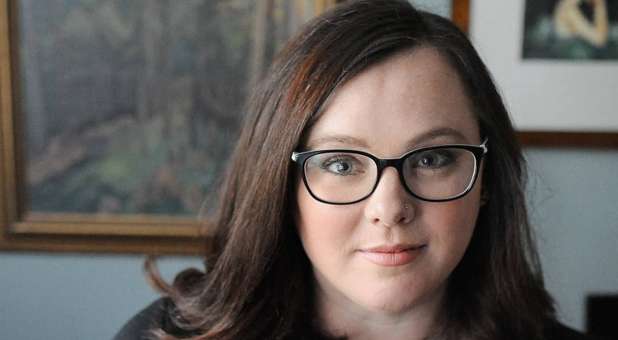

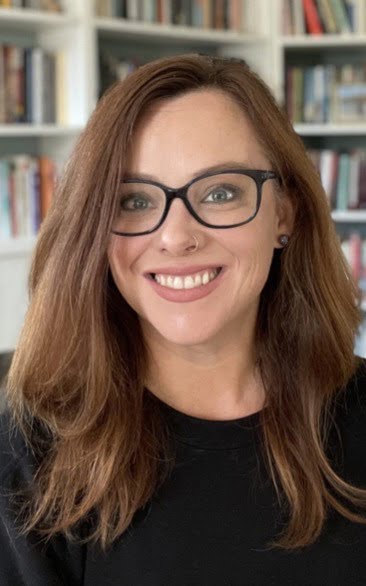
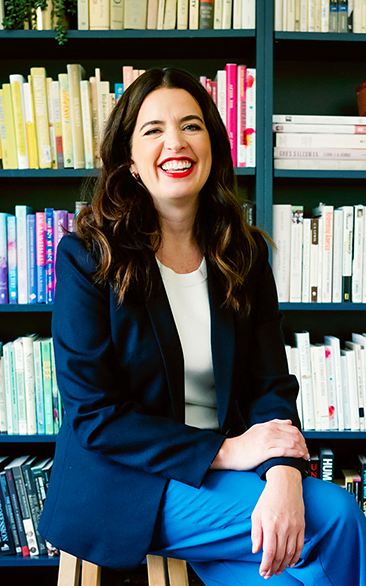








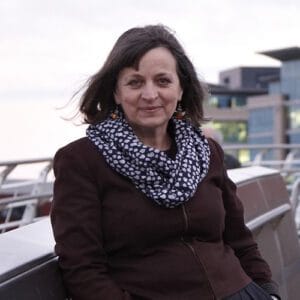
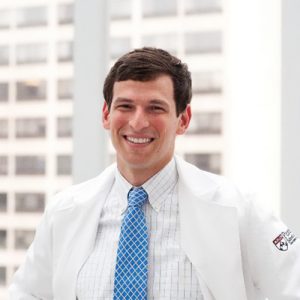
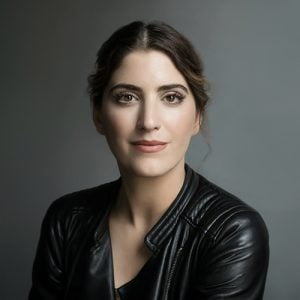
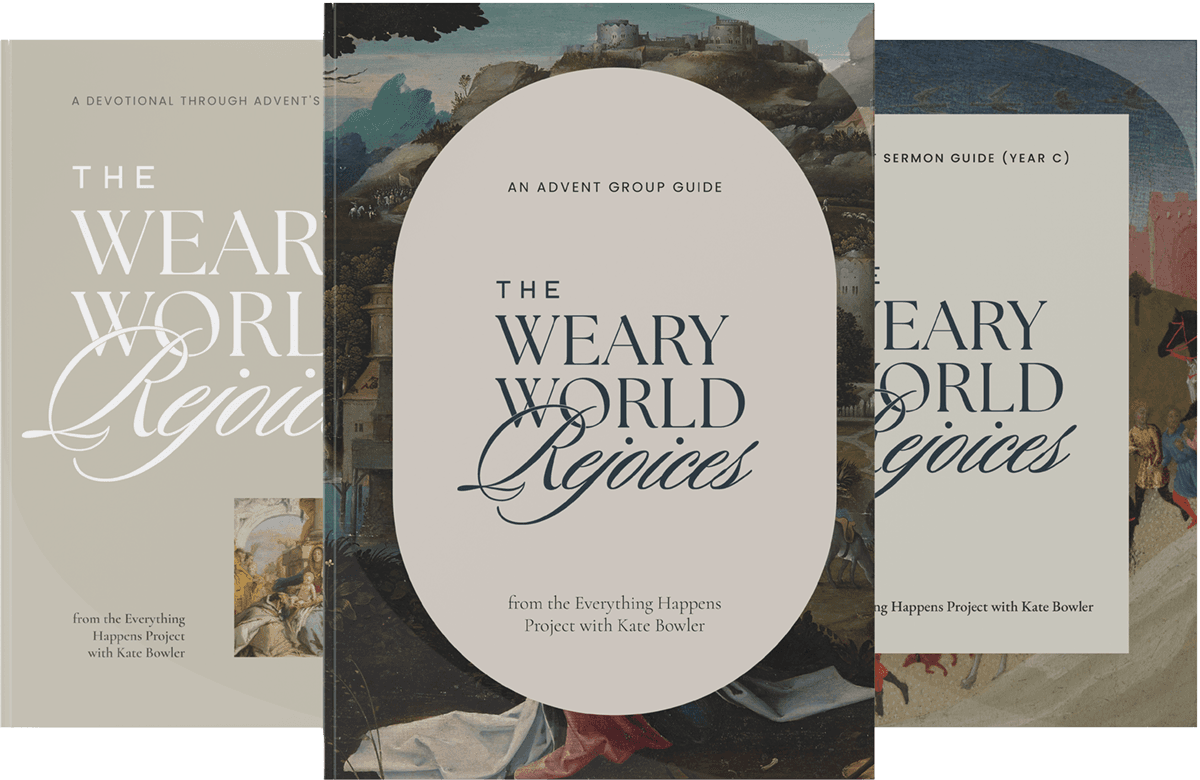
Leave a Reply